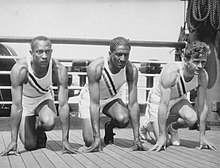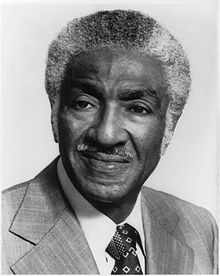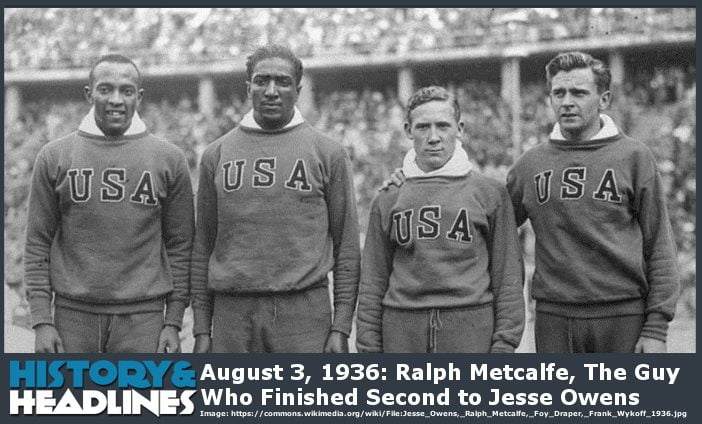A Brief History
On August 3, 1936, James Cleveland “Jesse” Owens won the 100-meter dash at the Berlin Olympics and blazed into the record books. Owens went on to everlasting fame by winning 4 Gold Medals in those summer games, proving to Hitler and Nazi Germany that Aryans were not the “master race.” But what about the guy that came in second in that historic race? That man was Ralph Metcalfe.
Digging Deeper
Born in Atlanta in 1910 and raised in Chicago, Metcalfe, once co-holder of the world record for the 100-meter dash, was no slacker himself, winning silver medals in the 100 meter dash in 2 Olympics. In 1934 and 1935, before Jesse Owens’ rise to the top, Metcalfe was considered the fastest man on the planet. Metcalfe also picked up a Gold Medal in the 4 x 100 meter relay in the 1936 Berlin Olympics, and had once held the 200 meter dash record as well.

Not just a fantastic track athlete, Metcalfe made good use of a track scholarship to Marquette, earning his Bachelor’s degree in 1936. A true scholar-athlete, he went on to UCLA and earned a Master’s degree in 1939, quite an accomplishment for a black man in pre-World War II America.
As a teacher of political science at Xavier University (in New Orleans), Metcalfe went on to mold young people and during World War II he served as a transportation officer, earning a Legion of Merit Medal along the way. After the war, Metcalfe returned to Chicago and got a job as head of the Illinois State Athletic Commission. Metcalfe then went into politics, winning 4 elections as an Alderman in Chicago, and in 1970 he became a Democratic Congressman for Illinois’ first district. Known to stick up for his constituents, Metcalfe had disagreements with Mayor Richard Daley over the use of police force, and in Congress he co-founded the Congressional Black Caucus. After serving 4 terms in Congress, Metcalfe died of a heart attack at his home in 1978.

Before his death, Metcalfe had been inducted into the National Track and Field Hall of Fame in 1975, and he had also served on the President’s Commission on Olympic Sports.
Honor student, Olympian and World Record sprinter, Metcalfe excelled at many things. As a decorated Army officer, successful politician, husband and father, the guy that finished second to Jesse Owens in the 1936 Olympics finished second to no one in life. His exemplary life and careers are as stark contrast to the list of “10 Sports Scandals” we also published on August 3 and another list we published on October 5, “1 + 9 More Sports Scandals” and are a reminder that some things are right with the world after all.

Question for students (and subscribers): Who is your favorite Olympic athlete? Please let us know in the comments section below this article.
If you liked this article and would like to receive notification of new articles, please feel welcome to subscribe to History and Headlines by liking us on Facebook and becoming one of our patrons!
Your readership is much appreciated!
Historical Evidence
For more information, please read…
Large, David Clay. Nazi Games: The Olympics of 1936. W. W. Norton & Company, 2007.
Streissguth, Tom. Jesse Owens (Just the Facts Biographies). Lernerclassroom, 2005.
The featured image in this article, a photograph of Jesse Owens (left), Ralph Metcalfe (second left), Foy Draper (second right), and Frank Wykoff (right), the USA 4×100 metres Relay Team at the 1936 Olympic Games in Berlin, is in the public domain, because its copyright has expired and its author is anonymous.
You can also watch a video version of this article on YouTube:


